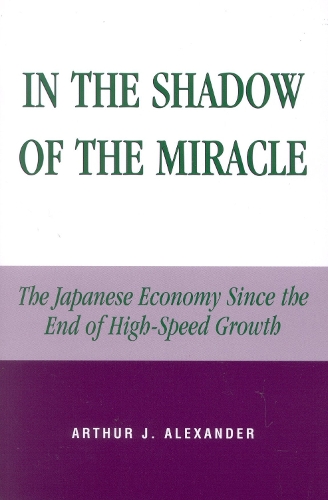
In the Shadow of the Miracle: The Japanese Economy Since the End of High-Speed Growth
(Paperback)
Publishing Details
In the Shadow of the Miracle: The Japanese Economy Since the End of High-Speed Growth
By (Author) Arthur J. Alexander
Bloomsbury Publishing PLC
Lexington Books
28th May 2003
United States
Classifications
Tertiary Education
Non Fiction
Regional / International studies
330.952
Physical Properties
Paperback
368
Width 148mm, Height 228mm, Spine 27mm
526g
Description
Japan is living in the shadow of its economic miracle. Its stagnation and decline relative to other advanced economies since the early 1990s is a consequence of business and government difficulty in breaking away from once-successful practices. The Japanese postwar economic miracle created the world's second largest capitalist economy. This remarkable performance, in the face of such enormous obstacles, helped solidify, even sanctify, the institutions, methods, and political arrangements associated with the economic miracle. Based upon a decade of research articles distributed in the Japan Economic Institute's weekly report on Japan, In the Shadow of the Miracle analyzes the sources of Japanese growth and the nature and scale of its current economic problems. Chapters examine the steps being taken by Japan's government and business leaders to address the mounting national economic problems and the impact on Japan of the wider Asian financial crisis (1997-99). A final section addresses the question of whether Japan is fundamentally different from other advanced economies.
Reviews
Alexander's book contains plenty of curious fact-finding, some of which isnot only of an economic nature, but also of a psychological, sociological, and political nature. * The Journal of Japanese Studies *
Author Bio
Arthur J. Alexander was President of the Washington, D.C. based Japan Economic Institute of America from 1990 to the Institute's closing in 2000. He is currently a visiting professor at Georgetown University and has taught at George Mason University, John Hopkins University's School of Advanced International Studies, the University of California, Los Angeles, and the Rand Graduate School.
